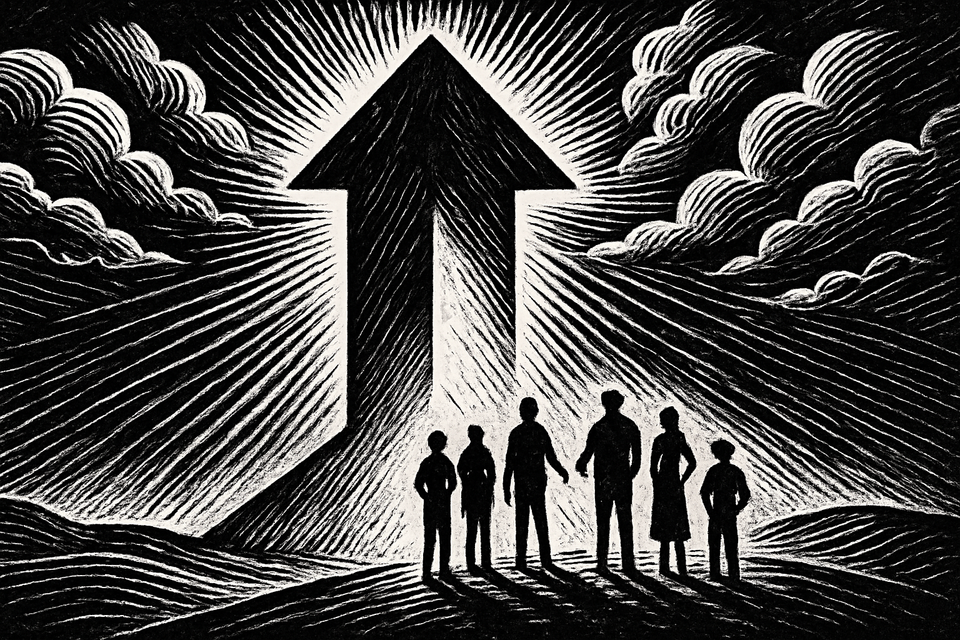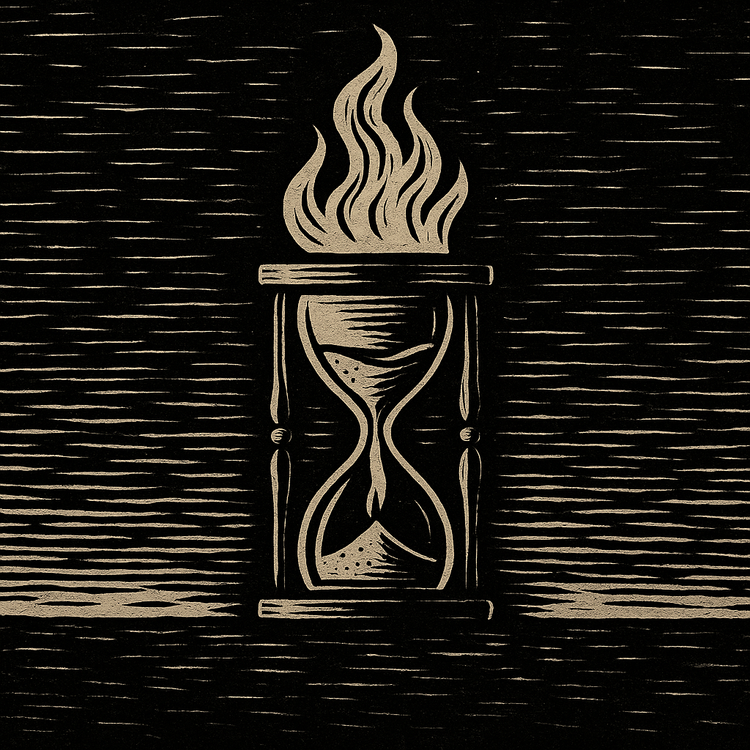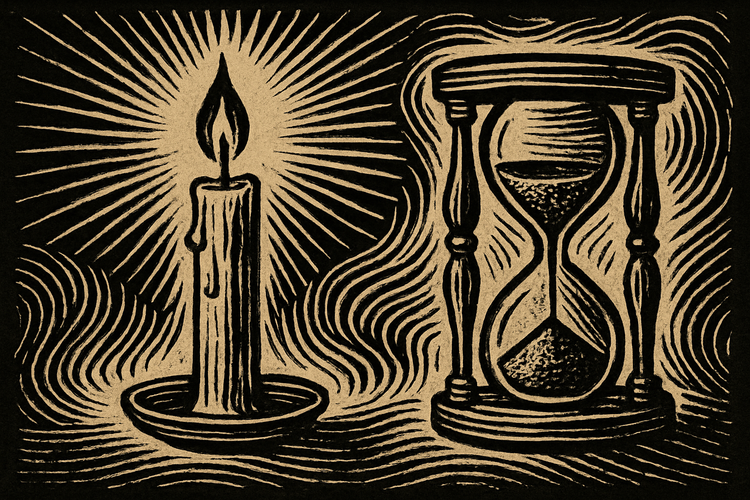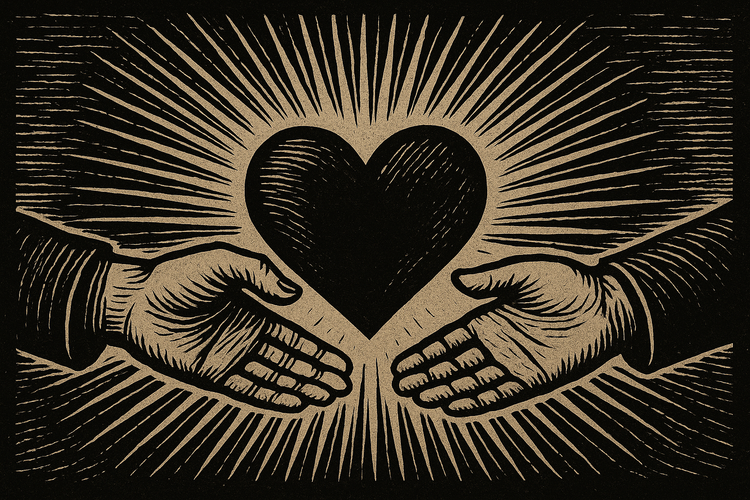Rejecting Cruelty, Embracing Endings: A Cornerstone on The Good Place S4

Spoiler Warning: This reflection contains full spoilers for The Good Place, including retrospective insights and thematic allusions. It assumes familiarity with the entire series and is written from the perspective of a rewatch.
Season 4 begins not with philosophy but with another test: one more neighborhood, four new humans, and a question that has haunted the show from the start—can people really change if you give them the right conditions? The early episodes circle back through old tricks and failed tactics, only to prove that progress requires more than punishments or scare tactics. Growth has to be designed.
From that experiment, the season gradually widens its scope. The cruelty of eternal punishment is finally named and rejected; in its place comes a blueprint for renewal, responsibility, and, at last, finitude. When the group reaches paradise, they discover that even joy loses meaning without an ending. The fix is gentle and radical at once—give souls a real choice to stop, so that everything before it matters.
By the finale, that design becomes a lived ethic. Endings aren’t punishments; they are gifts freely chosen, the last act of a life well-lived—or a life well-after-lived. Love proves itself not by holding on forever but by knowing when to let go. In that quiet, the wave returns to the sea, and meaning returns to time.
The Experiment, One Last Time (E1–E3)
The season opens by rebuilding the neighborhood with four new humans and a familiar constraint: help them grow without revealing the truth. Eleanor, now in charge, has to step into Michael’s shoes and carry the weight of responsibility. It’s an uneasy start—she’s improvising authority, leaning on Janet, and second-guessing herself at every turn. The challenge isn’t just whether the humans can improve; it’s whether Eleanor can trust herself enough to lead them(“A Girl from Arizona, Pt. 1”).
But the real puzzle arrives with a word most sitcoms would never touch: solipsism—introduced through Simone, who doubts whether the neighborhood and its people are even real. It’s a philosophical problem dressed as a crisis of faith, and it rattles the experiment at its core: how can you grow if you don’t believe anyone else exists? Brent, for his part, doesn’t name it, but he lives like it’s true. He treats everyone as background decoration for his own story, so the neighborhood’s reactive punishments—the trick that once jolted Eleanor awake—barely touch him. The only thing that stirs him is a prize: the promise of a “better place,” framed as a competition he can win. Even then, his motivation is hollow, exposing how fragile change becomes when it’s rooted in ego instead of connection. (“A Girl from Arizona, Pt. 2”).
So the team stops trying to scare people straight and starts designing for growth. Instead of cruelty, they use calibrated discomfort: purposeful pressure that invites responsibility. Chidi, even reset, becomes the test case—proof that structure can reawaken purpose and that kindness can be demanding without being punishing (“Chillaxing”).
Sabotage, Structure, and the Limits of Tricks (E4–E7)
The season then tests whether a system built on compassion can withstand bad-faith actors. Demonic interference slithers in through the side door: rumors of a “Michael suit,” shifting loyalties, and the unnerving sense that even leadership might be counterfeit. The plot mechanics are gleefully weird, but the point is clean—an ethical design must survive sabotage, not just ideal conditions (“Tinker, Tailor, Demon, Spy”).
That test hardens into a leadership crucible. Eleanor finds that running a just neighborhood isn’t about orchestrating perfect reveals; it’s about taking responsibility for imperfect people in imperfect time. The show’s old toolbox—disguises, sting operations, clever resets—still works for a beat, but only as a bridge to something sturdier: a community that can adapt when the plan breaks (“Employee of the Bearimy”).
Then comes the novel. Brent’s swaggering manuscript, A Chip Driver Mystery, is a perfect mirror of his blind spots—smug, sexist, impermeable to critique. The book’s awfulness isn’t just a joke; it’s a case study in how privilege metabolizes feedback into grievance. Tahani and Simone try a dozen angles—praise, candor, framing, reframing—and still hit the wall. The lesson isn’t that he can’t change; it’s that some changes require longer arcs and more deliberate design than any single “gotcha” can provide (“A Chip Driver Mystery”).
The experiment culminates in a high-wire dinner party where truth leaks, masks slip, and the human subjects face the fundamental test: will they reach for one another when it’s hard? The answer is messy and human. They fail in familiar ways and succeed in quieter ones; progress is real, but not all at once. The point lands in the title: help is other people—if the system helps us actually see them (“Help Is Other People”).
Choosing Design Over Judgment (E8–E11)
After the experiment stops, the show pivots from classroom to courtroom, then beyond both. At first, the squad “throws funerals” for themselves—a ritual that doubles as evidence. By naming who they were and who they’ve become, they give the Judge and the demons something data can’t: a narrative of growth that includes grief, gratitude, and the admission of how much they needed one another. It’s less a legal brief than a moral witness statement, and it reframes the problem: if people can change under better conditions, then justice has to care about conditions (“The Funeral to End All Funerals”).
The next half hour slows everything down to a soul’s timescale. Chidi’s life unfurls as a mosaic of choices, indecisions, and the loves that shaped him. What he rediscovers isn’t a single philosophical silver bullet, but a relational truth: there is no ultimate answer apart from the people you bind yourself to. The clarity he finds isn’t abstract; it’s a homecoming, and it steadies the whole season’s argument about what growth actually looks like (“The Answer”).
With that anchor in place, the show finally says the quiet part out loud: the old afterlife is cruel. Not because it acknowledges harm, but because it answers finite failures with infinite punishment. The Soul Squad refuses that premise and proposes something bolder than mercy—a system built for renewal. Instead of a single, eternal verdict, give souls iterative chances to learn, fail, make amends, and try again. Their offer to surrender themselves to save everyone else is rebuffed, but the gesture proves their point: they’re speaking from transformed lives, not from loopholes. Justice isn’t a scoreboard; it’s a design that makes better choices more likely (“You’ve Changed, Man”).
Then comes the hard part: doing the work. The new plan isn’t a magic wand; it’s a workplace. Demons need onboarding. Rules need writing. Processes need testing and revising. Michael and Shawn—so long adversaries—stand at the same whiteboard, piloting a system where responsibility replaces retribution. Bureaucracy doesn’t vanish; it finally serves something worth administering. The joke in the title is the thesis: if the afterlife runs on offices now, at least they’re offices devoted to giving people real chances to grow (“Mondays, Am I Right?”).
Paradise Needs an Ending (E12–E13)
We finally reach the Good Place, and it doesn’t work. Eternal wish-fulfillment erodes into a soft fog; desire loses shape without the contour of time. The residents, once brilliant and joyful, drift into forgetfulness and haze. Even Hypatia of Alexandria—renowned philosopher, reintroduced here as “Patty”—has become scattered and dulled by eternity, her sharp mind worn down into rambling distraction. Her condition is the season’s last lesson: even paradise needs friction to mean anything. The fix isn’t punitive; it’s a door. Not a trapdoor beneath sinners, but a real exit for the fulfilled. Meaning requires endings; love requires leaving room for goodbye (“Patty”).
That design isn’t theory for long. The finale lives inside the question the whole season has been asking: how do you know when you’re ready to let go? Jason, miracle of patience, is the first to cross. He waited in the woods for the perfect gift to come back around, and then, when quiet settled in his chest, he recognized it for what it was: enough. Tahani’s answer surprises her—when the feasts and feats lose their charge, she realizes her joy now lives in craftsmanship and care, in building spaces where other people can become who they’re meant to be. The choice to work rather than end is its own kind of ending: a farewell to the person who needed applause, a welcome to the architect who knows how to give it away (“Whenever You’re Ready”).
Eleanor and Chidi carry the season’s final lesson like a shared candle through Athens and Paris. Their love doesn’t wither because it ends; it ripens into the freedom to say the right goodbye at the right time. Eleanor’s courage isn’t stoicism; it’s devotion that refuses to hold someone past the moment it would turn possessive. Chidi’s gift back is clarity: the wave returning to the sea doesn’t annihilate the water that made the wave. It restores it. Meaning isn’t stolen by finitude; it’s granted by it.
The show’s last quiet move belongs to Michael. After designing a system where every soul gets chances to grow, he chooses the only way left for him to keep learning: he becomes human. Not as punishment, but as possibility—the messy, finite, consequential possibility that seasons everything with value. He wakes into mornings he didn’t earn and starts practicing what he’s taught for an entire afterlife: try, fail, repair, try again. The grand cosmic bureaucracy hums along without him because it was always meant to—justice on autopilot, but only after the people inside it learned how to care for one another.
What the Season Proves
If Seasons 1–3 were about discovering that the afterlife’s rules are fake, Season 4 is about writing better rules—and proving them in practice. The experiment re-teaches the obvious: fear can jolt you into short-term compliance, but it can’t carry you into love. Sabotage reveals what kindness must be paired with to matter: responsibility. The courtroom ritual turns growth into narrative, making space for grief and gratitude as moral evidence. Chidi’s memory mosaic insists that philosophy isn’t a shield from life; it’s a way through it, and only with other people. The pivot away from cruelty reframes justice from a sorting hat to a workshop. The office tour makes the joke serious: if the universe must be administered, let it be by people who learned, the hard way, that dignity outperforms doom.
And then, when paradise exposes its flaw, the season finishes the design: finitude. Endings are not the enemy of joy; they are the reason joy coheres. Without the door, delight evaporates into static. With the door, gratitude comes back into focus. People stop hoarding time because they know, at last, that time ends.
Across thirteen chapters, the show does something rare: it lets the characters’ growth authorize the philosophy instead of the other way around. The Soul Squad’s final blueprint rejects cruelty not because humans are secretly good all along, but because goodness is something we build together under conditions that make it possible. Give people a structure that expects failure and invests in renewal; give them companions who call them back to themselves; give them a finish line that lets meaning hold its shape. Do that, and justice stops being a place you get sent. It becomes a practice you share.
That’s the legacy of Season 4: a moral architecture with three pillars—renewal, responsibility, finitude—and a single animating claim beneath them all: love is more about letting go than it is about holding on. When the wave returns to the sea, the water is still there. The wave was just a different way of being for a while. And that’s enough.



Comments ()